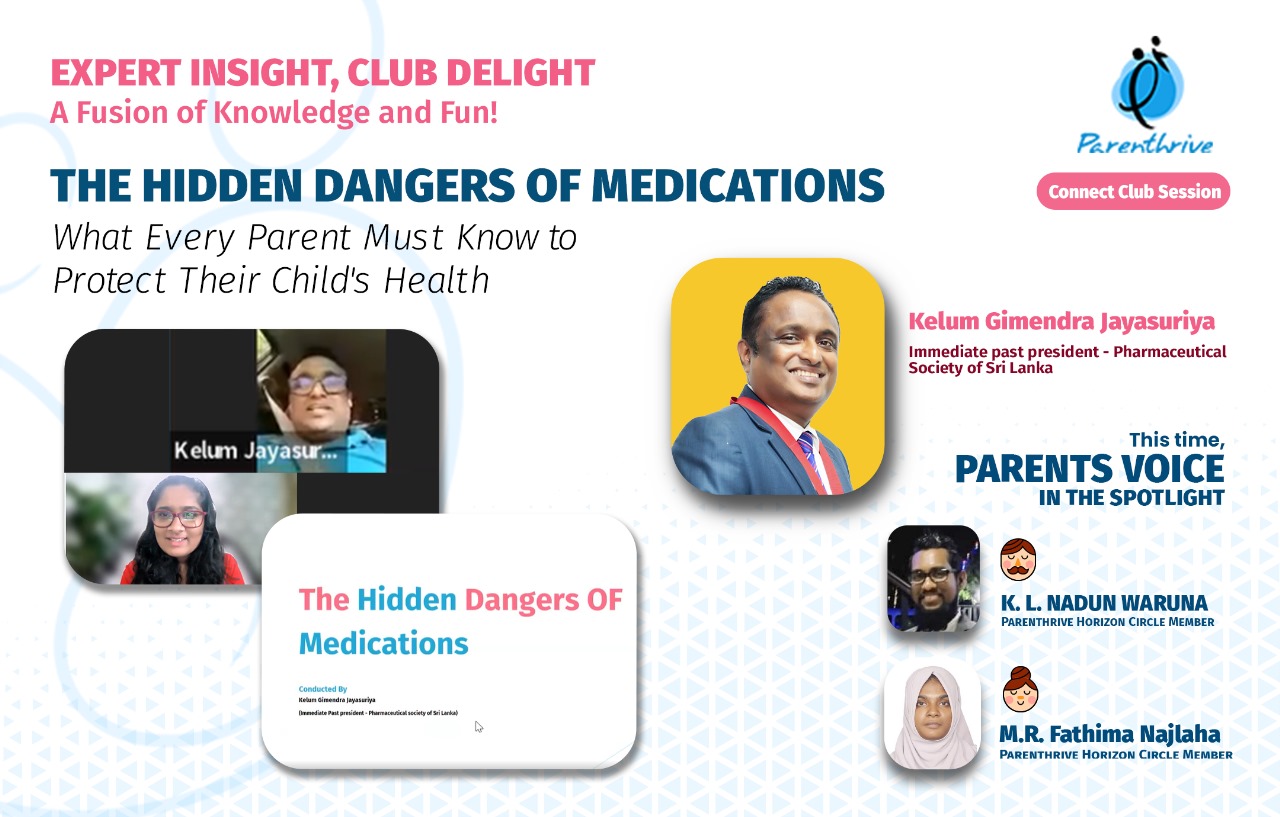
Introduction
In a recent Horizon Circle meetup organized by Parenthrive on August 31st at 4:00 PM through Zoom, pharmaceutical expert Mr. Kelum Gimendra highlighted the often-overlooked dangers associated with medication usage. The session emphasized the importance of understanding the nuances of medication, from the types of names to proper storage and administration.
Understanding Medication Names
Did you know that every medication has three names? While we are accustomed to using brand names like Panadol, the generic name for this medication is paracetamol. This generic name is used universally, regardless of the country or region.
The Impact of Brand vs. Generic Medications
While generic medications are often cheaper, they are not necessarily inferior. However, it's essential to ensure that the generic version is manufactured by a reputable company that adheres to quality standards. A substandard generic medication may not disintegrate properly, affecting its absorption into the bloodstream and ultimately its efficacy.
The Importance of Doctor's Prescriptions
One of the most crucial points emphasized by Mr. Gimendra is the importance of obtaining medication only with a doctor's prescription. Self-medication, particularly with antibiotics, can lead to serious health consequences. During the COVID-19 pandemic, the misuse of antibiotics was a significant concern.
Safe Medication for Children
- Fever Management: The World Health Organization (WHO) recommends administering medication to children only if their temperature exceeds 100.4 degrees Fahrenheit.
- Crushing Tablets: While paracetamol tablets can be crushed for infants, not all medications are suitable for this. Enteric-coated tablets, for instance, should not be crushed as it can alter their formulation.
- Lactating Mothers: Medications like Panadene can be converted to morphine and pass through breast milk, potentially affecting the baby.
Ayurvedic Medicine and Medication Interactions
Ayurvedic medicine can be a valuable tool, but it's essential to use it correctly. Consult with a qualified practitioner to determine appropriate dosages and avoid mixing it with other medications.
Proper Medication Storage and Administration
- Refrigeration: Not all medications require refrigeration. Storing some medications in the fridge can deactivate them. Additionally, never store medications on the fridge door, as the temperature fluctuations can affect their potency.
- Expiry Dates: Discard syrups after 28 days and mark the opening date on all medications.
- Medication for Children: Be honest with children about giving them medication. Avoid mixing it with food or drink, especially milk, as it can interfere with absorption. Water is the preferred choice.
Avoiding Drug Interactions
When taking multiple medications, it's crucial to avoid drug interactions. Consult with your doctor or pharmacist to ensure that your medications are compatible.
Conclusion
The hidden dangers of medications can be significant if not addressed properly. By understanding the nuances of medication usage, including names, storage, administration, and potential interactions, individuals can ensure their safety and optimize the effectiveness of their treatment.






